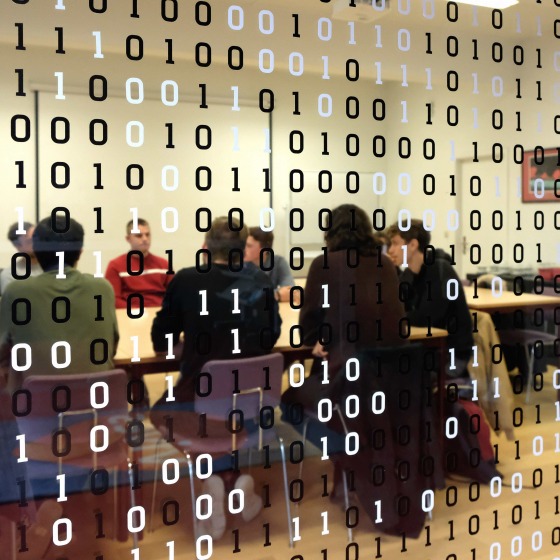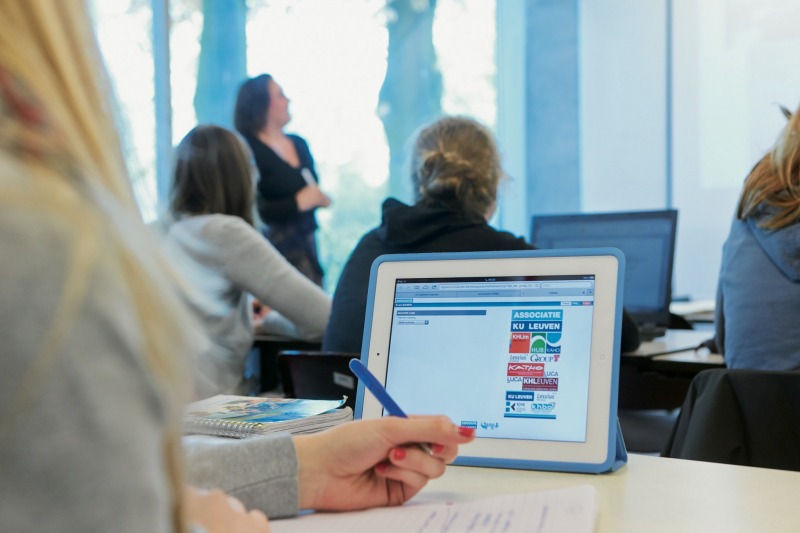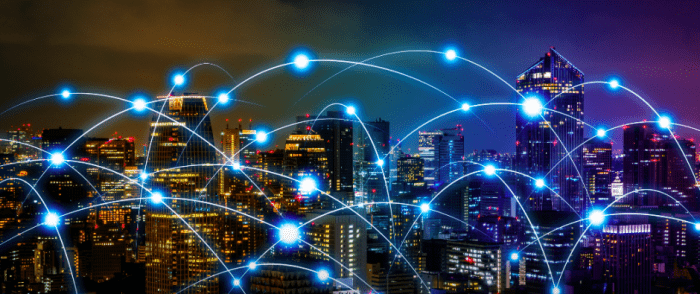Our society is currently evolving towards artificial intelligence, nanotechnology, transhumanism, industry 4.0, quantum computing, blockchain, and this will alter the way we live, work and think. Some view these evolutions with caution, whilst others welcome them with open arms.

In this interdisciplinary programme, we aim to develop a critical awareness of arguments on either side; considering potential threats to, among others, equality and democracy, as well as examining new opportunities like e-business, e-health and e-governance.
Many objects are now connected to the internet. Smart watches, for instance, can be connected to other devices through network facilities. These items are nothing more than commonly known ideas or systems with an upgrade, equipped with sensors and collecting data. We take a closer look at people’s motivations to develop new kinds of interconnected technology. Which goals are they trying to achieve?

Study material
Study materials include books, courses and digital learning materials that you need to for the successful completion of the programme.
Study material
This study material can be offered in paper form (printed course texts, readers, learning and workbooks, reference books) or in electronic form (e-books, PDF documents, PowerPoint presentations, online tutorials, audio and video). Our electronic learning environment, Toledo, plays a central role in your education. There, you will find all information on your courses, teachers, and course materials.
Subjects and contents
Curious about the subjects intros programme? Check below for a concise overview or look at the complete ECTS sheet.
Subjects and contents
This interdisciplinary programme does not require prior technical knowledge and is available to students from varying backgrounds. We work with interactive lectures, guest speakers, field trips, group works, individual assignments and an international experience in order to expose students to different visions and perspectives. At the end of the semester you will be able to give technology-neutral advice about new phenomena like digistress, the digital gap, data protection, cyber bullying, tech addiction and digital footprint.
The 30-credit programme includes the following courses:
- The Information Age (10 credits - An Evolutionary Journey & Internet of Everything)
- The Human Factor (5 credits)
- Legal & Ethical Framework (3 credits)
- Bachelor’s Theses (12 credits)
Here you will find the ECTS-sheet of this programme. ECTS stands for European Credit Transfer System and is the European system for the transfer and accumulation of study credits. 1 study point equals 25 to 30 hours of work.
Study material
This study material can be offered in paper form (printed course texts, readers, learning and workbooks, reference books) or in electronic form (e-books, PDF documents, PowerPoint presentations, online tutorials, audio and video). Our electronic learning environment, Toledo, plays a central role in your education. There, you will find all information on your courses, teachers, and course materials.

